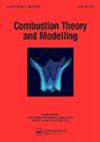直链烷烃点火延迟预测的数据驱动框架
IF 1.6
4区 工程技术
Q4 ENERGY & FUELS
引用次数: 0
摘要
点火延迟时间(IDT)是影响发动机热效率和排放(尤其是NO)的重要燃烧特性。IDT通常通过激波管和快速压缩机(RCM)进行实验来测量。IDT的数值计算是一个计算量大、耗时长的过程。阿伦尼乌斯型经验相关性提供了一种廉价的替代方法来获得IDT。然而,这种相关性具有局限性,因为这些相关性通常涉及特定参数,并且仅对特定燃料和特定温度/压力条件范围有效。本研究旨在制定一种数据驱动的科学方法来获得新燃料的IDT,而不需要进行详细的数值计算或依赖于特别的经验相关性。我们提出了一项严格的、经过充分验证的数据驱动研究,使用基于回归的聚类算法来获得新燃料的IDT。在我们的模型中,我们通过用分子中存在的不同键来表达总活化能()来引入燃料结构。采用高斯混合模型(Gaussian Mixture Model, GMM)形成聚类,并对每个聚类进行回归生成模型。将该算法应用于直链烷烃(c_h = 4 ~ 16)的点火延迟数据集。所获得的高精确度证明了所提出的算法在IDT数据上的适用性。本文中讨论的算法和框架是用python实现的,可以在https://doi.org/10.5281/zenodo.5774617上获得。本文章由计算机程序翻译,如有差异,请以英文原文为准。
A data-driven framework to predict ignition delays of straight-chain alkanes
Ignition delay time (IDT) is an important global combustion property that affects the thermal efficiency of the engine and emissions (particularly NO ). IDT is generally measured by performing experiments using Shock-tube and Rapid Compression Machine (RCM). The numerical calculation of IDT is a computationally expensive and time-consuming process. Arrhenius type empirical correlations offer an inexpensive alternative to obtain IDT. However, such correlations have limitations as these typically involve ad-hoc parameters and are valid only for a specific fuel and particular range of temperature/pressure conditions. This study aims to formulate a data-driven scientific way to obtain IDT for new fuels without performing detailed numerical calculations or relying on ad-hoc empirical correlations. We propose a rigorous, well-validated data-driven study to obtain IDT for new fuels using a regression-based clustering algorithm. In our model, we bring in the fuel structure through the overall activation energy ( ) by expressing it in terms of the different bonds present in the molecule. Gaussian Mixture Model (GMM) is used for the formation of clusters, and regression is applied over each cluster to generate models. The proposed algorithm is used on the ignition delay dataset of straight-chain alkanes (C H for n = 4 to 16). The high level of accuracy achieved demonstrates the applicability of the proposed algorithm over IDT data. The algorithm and framework discussed in this article are implemented in python and made available at https://doi.org/10.5281/zenodo.5774617.
求助全文
通过发布文献求助,成功后即可免费获取论文全文。
去求助
来源期刊

Combustion Theory and Modelling
工程技术-工程:化工
CiteScore
3.00
自引率
7.70%
发文量
38
审稿时长
6 months
期刊介绍:
Combustion Theory and Modelling is a leading international journal devoted to the application of mathematical modelling, numerical simulation and experimental techniques to the study of combustion. Articles can cover a wide range of topics, such as: premixed laminar flames, laminar diffusion flames, turbulent combustion, fires, chemical kinetics, pollutant formation, microgravity, materials synthesis, chemical vapour deposition, catalysis, droplet and spray combustion, detonation dynamics, thermal explosions, ignition, energetic materials and propellants, burners and engine combustion. A diverse spectrum of mathematical methods may also be used, including large scale numerical simulation, hybrid computational schemes, front tracking, adaptive mesh refinement, optimized parallel computation, asymptotic methods and singular perturbation techniques, bifurcation theory, optimization methods, dynamical systems theory, cellular automata and discrete methods and probabilistic and statistical methods. Experimental studies that employ intrusive or nonintrusive diagnostics and are published in the Journal should be closely related to theoretical issues, by highlighting fundamental theoretical questions or by providing a sound basis for comparison with theory.
 求助内容:
求助内容: 应助结果提醒方式:
应助结果提醒方式:


